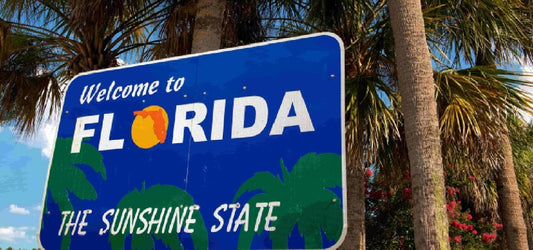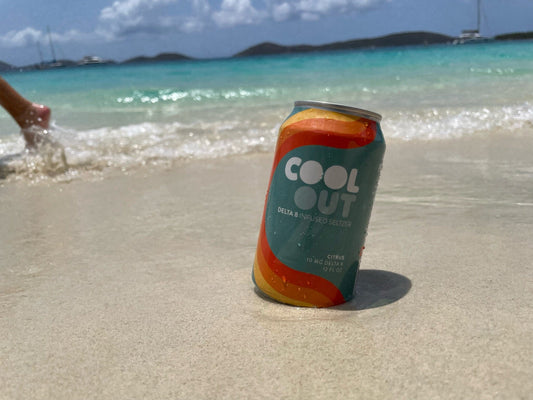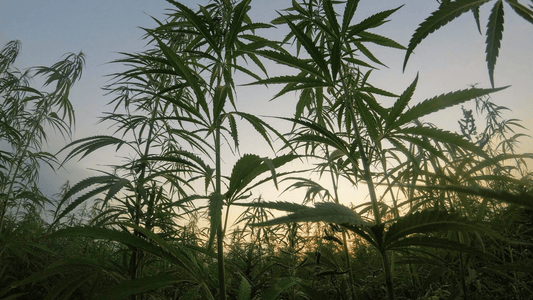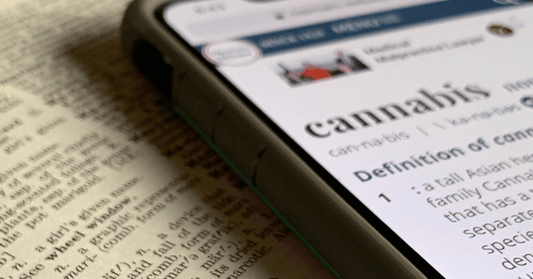The Delta 8 THC cannabinoid from cannabis has caused a buzz in the industry. As more and more people use Delta 8 products, many are left wondering: what exactly is this cannabinoid? And are there any negative side effects of Delta 8?
More specifically, people want to know exactly how Delta 8 THC affects the mind and body. They also want to know about side effects that might be associated with a largely untested compound.
Bottom Line Up Front
What are the possible side effects of using Delta 8 THC?
Delta 8 and Delta 9 are similar in both chemical structure and effects. But you can think of Delta 8 as the light version of THC. And that goes for the side effects, too. Delta 8 THC is a lighter version of the cannabinoid, which means it has less psychoactive effects than regular THC.
It’s also not as strong as Delta 9 THC—in fact, it’s about 50% weaker. And because it’s less potent, you’ll probably experience less of the negative effects of THC. This can be a good thing if you don’t want your mind racing or feeling anxious.
Delta 8 THC is also less likely to cause feelings of paranoia and anxiety. And, because it’s not as strong as Delta 9, you may experience fewer negative effects if you have a low tolerance for THC.

What is Delta 8 THC?
Before we get to any negative side effects of Delta 8, let's understand what this cannabinoid is.
There are many different types of THC, each with different properties and effects on the body. Delta-8-THC is one such variant, and it’s a rarer type of cannabinoid that has disrupted the legal cannabis industry.
Delta 9 THC is the most widely occurring form of natural, psychoactive Tetrahydrocannabinol (THC). Tetrahydrocannabinol—or THC, for short—is the chemical compound in cannabis plants that causes a euphoric high. Delta 8 THC is an analog of THC that produces a slightly different kind of high.
The delta-8 tetrahydrocannabinol chemical structure is similar to that of regular THC in that it is also an agonist for the CB1 receptor. However, there are some differences between Delta 8 and regular THC. And they’re important if you want to understand how each compound affects your body and mind.
Delta 8 and Delta 9
Tetrahydrocannabinol—or THC, for short—is the chemical compound in cannabis plants that causes a euphoric high. As we have mentioned, Delta 8 THC produces similar effects to Delta 9.
There are many different types of THC, each with different properties and effects on the body. Delta-8-THC is one such variant, and it’s a rarer type of cannabinoid that has many people asking questions. It still has THC in its name, so is it the same as regular THC? Is it legal? The delta-8 tetrahydrocannabinol chemical structure is similar to that of regular THC in that it is also an agonist for the CB1 receptor.
Yes, they are very similar in naming structure, and that's because they are similar in chemical structure as well. Delta 8 THC is what is referred to as an analog, or an isomer, of regular old THC (Delta 9 THC).
However, Delta 8 is not the same as Delta 9. They are two different cannabinoids separated by the placing of their double bonds. The D8 has its double bond on the eight carbon chain, whereas THC as we know it has its double bond on the ninth.
Delta 8 is typically harvested from hemp, which is the main reason for the difference in federal legality. Delta 9 also has a stronger effect on the CB1 receptor than Delta 9, and as such, is much more psychoactive.
Did you know?
The legal threshold for what constitutes a hemp plant in the United States is less than 0.3% Delta 9 THC.
Because Delta 8 THC is so rare in nature, most of the time it's made from CBD found in hemp. The Farm Bill of 2018 legalized industrial hemp, which has created a booming market for CBD and other products containing cannabinoids derived from hemp.
Thanks to the 2018 Farm Bill, brands can legally produce and sell Delta 8 products. As a result, Delta 8 THC is now readily available to those who want to experiment with the compound. Unless, of course, states impose their own restrictions on Delta 8.

What Does Delta 8 THC Do?
Delta 8 THC is an agonist for both the CB1 and CB2 receptors in the brain. You may be wondering what an agonist does—and that’s a good question!
Agonists are molecules that bind to receptors like CBD or THC do, but they also trigger a response from those receptors. For example, if you find chocolate or coffee really delicious, there's a reason! That’s because it has some caffeine in it. And caffeine is an agonist for adenosine receptors found in your brain.
Delta 8 THC is a psychoactive compound that binds to the CB1 receptors in your brain and central nervous system. You know Delta 8 and Delta 9 have similar chemical structures. This means it has many of the same potential medicinal benefits including:
- Pain relief
- Anti-inflammatory properties
- And mood enhancement
However, unlike CBD, Delta 8 THC can cause anxiety in some people. That’s why it’s best to take Delta 8 THC in a low dose initially and see how you feel. You may need to adjust the dosage over time or try different forms of Delta 8, like a Delta 8 beverage.
You can also read our latest blog on How long does Delta 8 stay in your system?
What About Legal Status?
The Food and Drug Administration (FDA) hasn't officially approved or rejected Delta 8 THC yet. But the Drug Enforcement Agency recently clarified that it isn't subject to enforcement under the Controlled Substances Act.
For details please do read our detailed article on the legality of Delta 8.
Let’s get to the dirty details: Are there any negative side effects of Delta 8?
Both Delta 8 and Delta 9 have similar chemical structures and effects. But Delta 8's effects are about half as potent as Delta 9 THC. And Delta 8's side effects are also similar to THC, but on a much lighter scale.
But, people do still experience some side effects. What are they?
What are the side effects of Delta 8 THC?
Some people have reported some side effects when using Delta 8 products.
Common side effects include:
- Red, bloodshot eyes
- Impaired cognitive abilities
- Anxiousness
- Dry mouth
- Dizziness
- Sensitivity to light
- Nausea Weakness
- Irregular breathing
These side effects are not particularly common, although those sensitive to THC may find they are more prone to the side effects.
What should you do?
Are you wary of experiencing side effects? Or are you sensitive to THC? There are two simple ways to avoid an adverse reaction.
Monitor your intake
Are you concerned about feeling a bit too funky after Delta 8 products? That's no reason not to try them. Simply start off with a low dose. Delta 8 is approximately 50% less potent than regular THC. This means you need to consume 50% more Delta 8 to feel the same side effects as you would with regular THC (Delta 9). A good starting dose would be around 10 mg Delta 8.
But have you ever used tincture or CBD oil? Then you know how difficult it is to make sure you get the right amount out of the dropper. Make it easy for yourself and enjoy a product with a set amount of 10 mg, like a Delta 8 drink. They're simple and delicious.
Buy a quality product
Since the Delta 8 marketplace is pretty much unregulated by the FDA, you need to be a smart consumer. Look out for products that don't offer transparency or COAs on their products. And avoid them like the plague.
As with any new trending product, brands are quick to jump on the bandwagon. This in itself is not necessarily a bad thing. But some brands don't always put people first. Instead, they focus on profits while cutting corners.
Brands that encourage you to check out their COAs are the ones to support. You can see exactly what is (and what isn't) in their products.
Ready to sip on some Delta 8?
Check out the Cool Out store (and their COAs). Cool Out's Delta 8 is sourced from organic hemp grown on certified farms that is certified with a viewable certificate of Analysis (COA). With water-soluble nanotechnology, the Delta 8 is absorbed by your body in just 15 minutes.
You'll find a flavor to suit any mood, whether you're out having fun or chilling on the couch.






